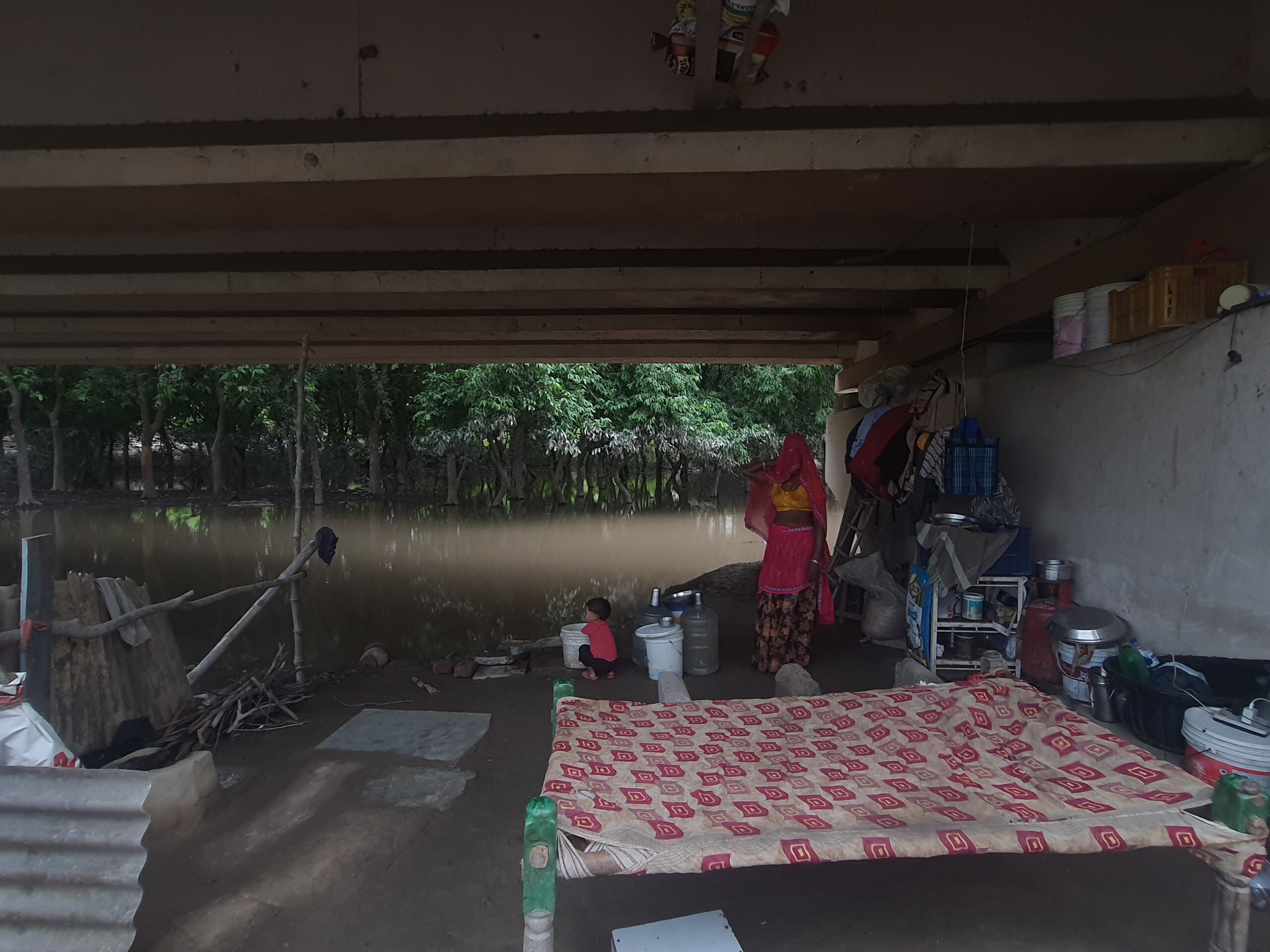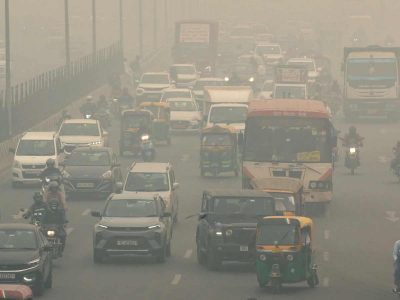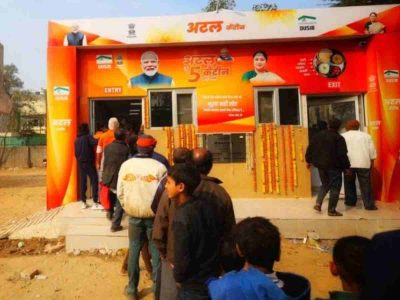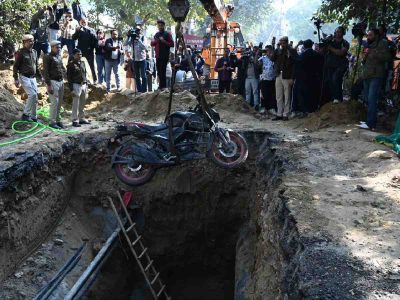On a sweltering Monday afternoon, in a narrow alley heading towards Bela Estate near Yamuna Khadar and adjoining Geeta Colony under a flyover, numerous residents of the area were seen organising their belongings in their shanties. They had recently recovered these from the deluge.
The residents had taken shelter either under the flyover or on the footpaths. Women and men, while holding hands of their children, were seen teary-eyed and in a helpless state.
Nearly 2,000 of the 2,500 residents, including men, women, children, and elders, are complaining of eye flu and skin infections. The women are also being troubled by vaginal infections.
Due to the flood-water, vaginal infections can be very common and trouble the women. Various experts claim that Urinary Tract Infections (UTIs) can stay for longer and imbalance the metabolism of women.
Residents claim that the women are also suffering as there are no toilets for them, which is affecting their hygiene and bringing other problems.
Rita Devi, a 45-year-old woman, who works as domestic help, said, “There are not even toilets. Where will I go for urination? I cannot relieve myself on the road. We practice modesty. That is very important to us. The authorities should at least provide us with the basic facilities that we need in this condition and also think about the poor and do something for us as soon as possible before any huge disaster falls upon us.”
She complained that use of dirty water has resulted in her catching vaginal infection.
“Due to the usage of unclean water, I have caught vaginal infection, which is killing me as I am not able to walk because my private parts have rashes and small cuts. It burns while urinating. I cannot even ask for help openly. I am shy and helpless. Not only me, other women are also facing the same problems. We do not see any alternative,” she laments. Neerja Rana, a dermatologist at a private hospital, said, “Vaginal infections and skin infections are very common where one is using unclean water or living in an unhygienic place where bacteria, viruses and fungus are present in abundance. They grow and feed on the flood-water and their direct or indirect communication infects the people badly. Not only this but when one stays in floodwater for a long time, some microorganisms stick to the body with a potential to cause deadly infections.”
“To safeguard and protect, one has to take vaccines and build immunity but unfortunately, the poor cannot maintain that. The government has to come to the forefront and take measures to tackle it,” Rana added.
Skin infection is quite prevalent. Prakash, a 35-year-old labourer, told Patriot, “Since the flood-water has receded, we have returned to the makeshift tent, which was washed away. We are trying to set it up again. Unfortunately, my daughter and wife caught some infections. They have redness on their bodies and are suffering from allergies as well. It is causing them itchiness and some greyish pigmentation.”
Prakash said that the medicines are of no use as they continue to live in unhygienic conditions.
“We have been left to die or look for ourselves on our own. Nobody came to see the conditions we are living in, and no authority bothered to check on us. Is this what the government has promised?” Prakash asked.
Helpless residents are banking on each other for support.
In the evening, residents are seen consoling each other and helping to organise their belongings in the shanties saying “We are for each other if no one helps us”.
Residents also complained of lack of medical aid. They claimed that they received medical aid only on one day, but the medicines were ineffective, and they had to consult a private doctor, which most could not afford because of their socioeconomic status.
Mohanlal Kumar, an elderly man who works as a cart driver, said in anguish, “I caught eye flu some five days ago. After me, my wife, and my children also got affected. I waited for a medical team’s visit. They came and gave me medicine, but it was not of any use. It did not relieve me of my pain. I went to the nearest chemist, and he gave me some drops.”
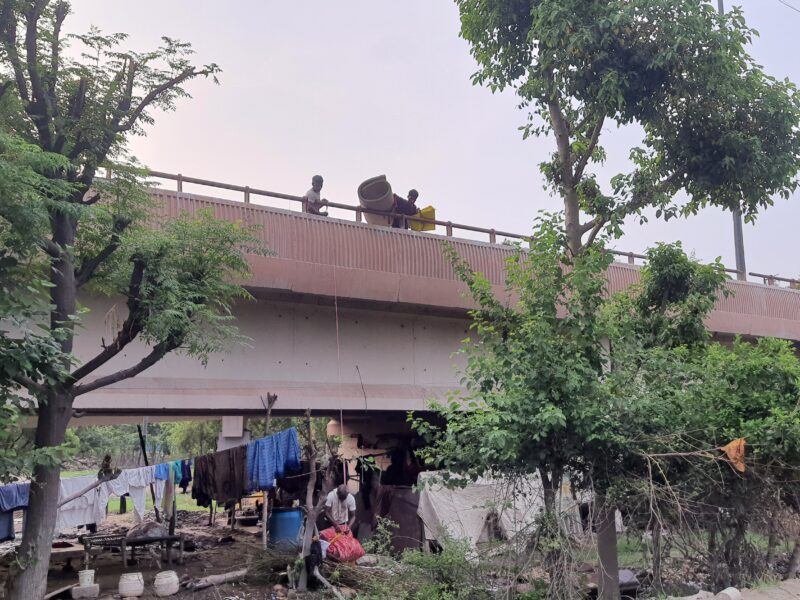
“I had no way to maintain distance from my family as we do not have a proper place to live. We are living in a makeshift tent. We are in proximity and use each other’s stuff. What can I do? We do not even have clean water to drink or use. We use the same unclean water of the Yamuna, due to which many have fallen ill and caught fever.”
The residents added that with limited access to clean water for drinking, washing, cooking, and cleaning, as well as sharing small spaces, the virus is spreading quickly among them, and in each family, one or two members are down with diseases.
Pooja Sen, a general physician at a private hospital in Delhi, says, “There is a surge in cases of eye flu among the people in Delhi. More prone are the people who live near the floodplains and are living in unhygienic conditions where the moisture is high and rainwater gets easily collected, as there will be fewer chances of hygienic conditions or they may have fewer resources to safeguard themselves. The flu can spread easily to anyone who comes into direct contact with the fluid that an infected person’s eye drains. It is spread by bacteria and viruses that pass from one person to another.”

